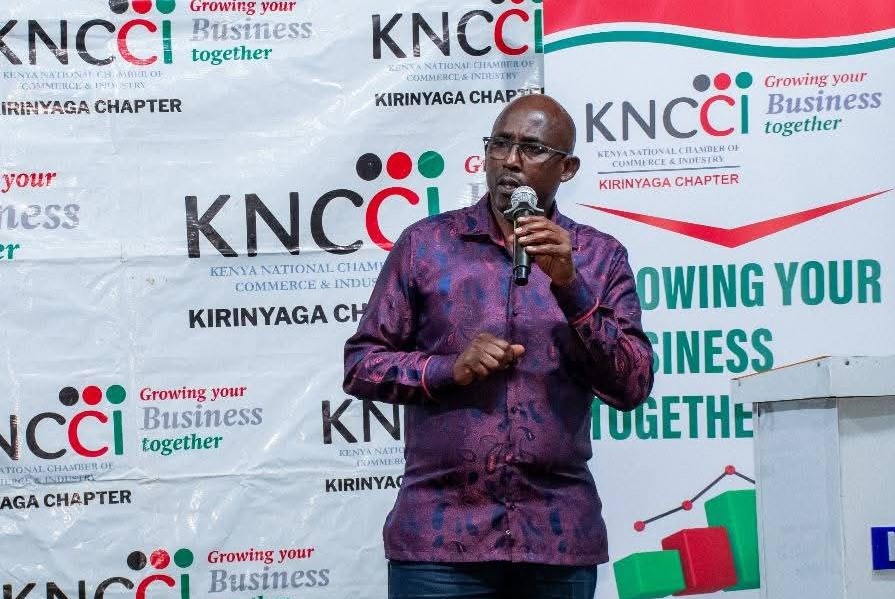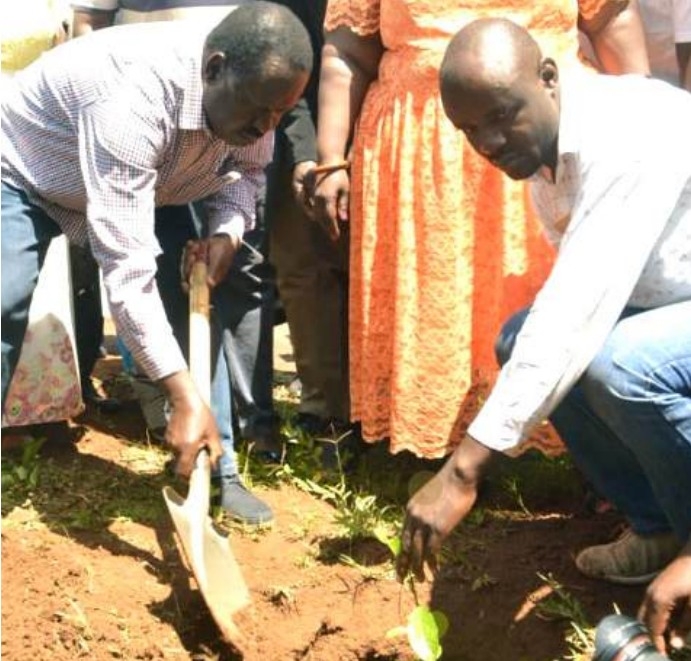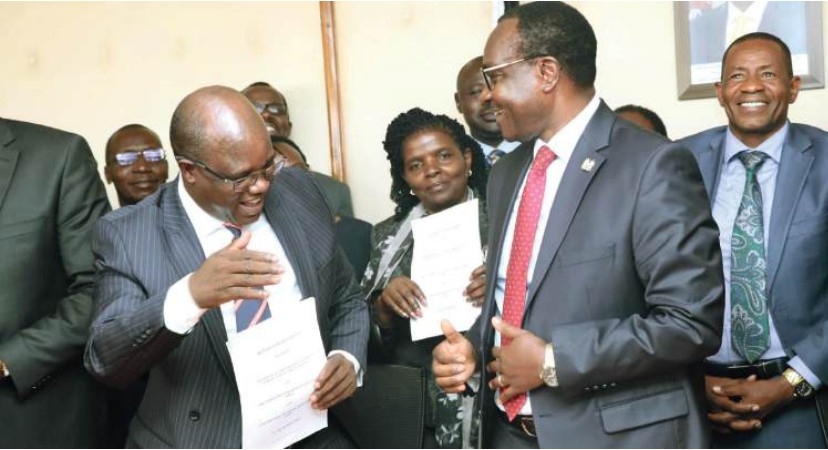
 Michael Gaitho,
head of Dubai
Chamber
International’s
office in Kenya,
addresses
members of the KNCCI
Kirinyaga
chapter in
Mwea
/ALICE WAITHERA
Michael Gaitho,
head of Dubai
Chamber
International’s
office in Kenya,
addresses
members of the KNCCI
Kirinyaga
chapter in
Mwea
/ALICE WAITHERAFarmers and the business community in Kirinyaga have been urged to utilise a trade agreement between Kenya and the United Arab Emirates to market their products.
The county is one of the richest agriculturally and is ranked first in coffee production nationally, producing about 17 per cent of the total production valued at Sh5 billion annually.
It also produces about 80 per cent of the national rice production through the Mwea Irrigation Scheme.
In January, President William Ruto and his UAE counterpart Sheikh Mohamed bin Zayed Al Nahyan signed the Comprehensive Economic Partnership Agreement that is expected to deepen trade between the two countries.
The head of Dubai Chamber International’s office in Kenya, Michael Gaitho, told local traders that the pact will enhance exports to the Middle Eastern country, which currently buys fruits, vegetables, tea and animal products.
“Our main export to the UAE is tea. Counties like Kirinyaga are strategically placed to take advantage of this agreement because they already produce some of the products that have been accessing the market,” he said.
Gaitho, who was addressing members of the Kenya National Chamber of Commerce and Industry, Kirinyaga chapter, said the trade agreement is in the process of implementation and that once operationalised, Kenyans should take full advantage of it.
In 2023, the UAE emerged as the sixth-largest importer of Kenyan goods with trade between the two countries hitting $3.44 billion.
About 16 per cent of the country’s imports were from the UAE, to which Kenya exported fruits worth $40 million, $43.33 million of flowers and vegetables and $76.59 million of meat, among others.
The agreement, Gaitho noted, allows local products to have duty-free and quota-free access to the UAE market, which will raise trade between both nations to 40 per cent.
“This means that some trade barriers have been removed. We will then agree on product standardisation and conformity so they can access the UAE market,” he said.
Earlier this year, the government announced a raft of measures to support value addition of tea, including the removal of excise duty on packaging materials and VAT on value-added tea exports, while opening the sector up to direct sales to eliminate middlemen.
The push to have local products such as value-added tea will benefit the local economy more, as they will fetch premium prices and help create jobs.
Only four other African countries have signed similar trade pacts with the UAE, including the Republic of Congo, Angola and Mauritius, he added.
Pauline Wangechi, county chairperson of KNCCI, called on county and national governments to consider renovating and operationalising Mwea Airstrip to boost local trade.
She said the airstrip would come in handy in aiding fast transportation of agricultural products without having to use the busy Embu-Mwea-Nairobi highway.
The county exports thousands of tonnes of macadamia and avocado to the European Union and Asian countries, Wangechi added, saying if operational, the airstrip will play an integral role in easing both national and international trade.
“One of our responsibilities is to create market linkages for our members and that’s why we invite partners to our meetings. After this, we will be strategising on how we can take advantage of the UAE market as we have been advised,” she said.
She lauded both county and national governments for establishing numerous markets that have created a conducive environment for small-holder traders to conduct their businesses, supporting local economies.
The chair urged traders to enhance their relations with local communities to discourage incidents where locals are hired to attack them.
“Let us guard our businesses. Let’s ensure what happened in previous protests where businesses were looted doesn’t recur, but also let’s do what we can to support local communities because it’s the local youth who are hired to attack businesses,” she added.
Instant Analysis
In January, President William Ruto and his UAE counterpart Sheikh Mohamed bin Zayed Al Nahyan signed the CEPA that is expected to deepen trade between the two countries. The trade pact will enhance Kenya’s exports to the Middle Eastern country which buys fruits, vegetables, tea and animal products.















![[PHOTOS] How ODM@20 dinner went down](/_next/image?url=https%3A%2F%2Fcdn.radioafrica.digital%2Fimage%2F2025%2F11%2F99d04439-7d94-4ec5-8e18-899441a55b21.jpg&w=3840&q=100)


